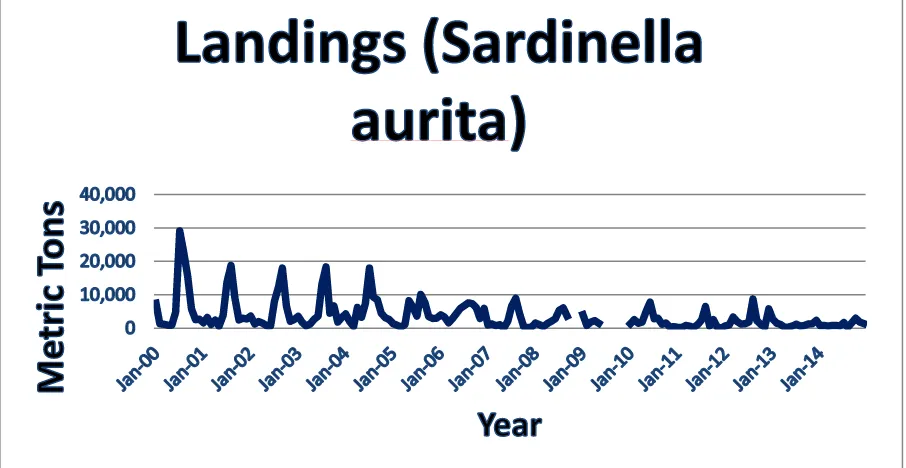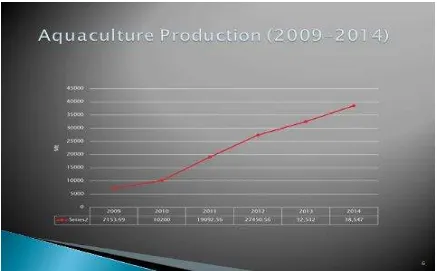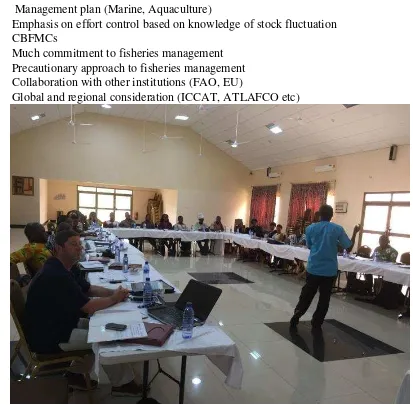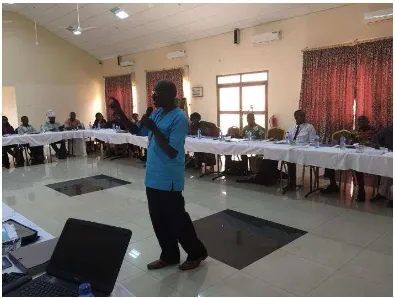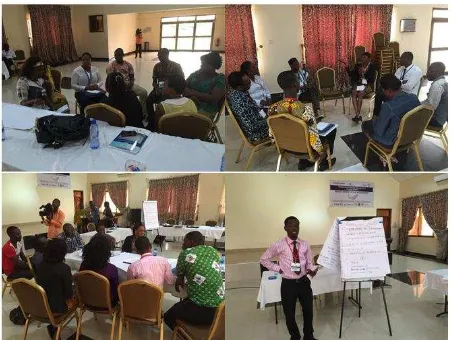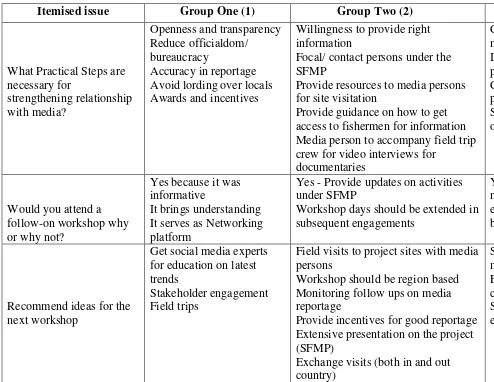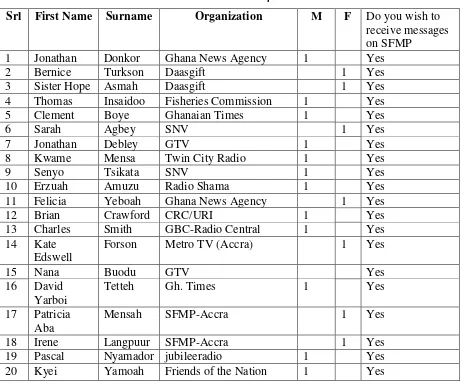SUSTAINABLE FISHERIES
MANAGEMENT PROJECT (SFMP)
Media Orientation Workshop Report
This publication is available electronically on the Coastal Resources Center’s website at
http://www.crc.uri.edu/projects_page/ghanasfmp/
For more information on the Ghana Sustainable Fisheries Management Project, contact: USAID/Ghana Sustainable Fisheries Management Project
Coastal Resources Center
Graduate School of Oceanography University of Rhode Island
220 South Ferry Rd.
Narragansett, RI 02882 USA
Tel: 401-874-6224 Fax: 401-874-6920 Email: [email protected]
Citation: SNV, Netherlands Development Organisation, Coastal Resources Center. (2015). Media Orientation Workshop Report, 5th August, 2015. The USAID/Ghana Sustainable Fisheries Management Project (SFMP). Narragansett, RI: Coastal Resources Center, Graduate School of Oceanography, University of Rhode Island. GH2014_COM013_CRC. 17 pp.
Authority/Disclaimer:
Prepared for USAID/Ghana under Cooperative Agreement (AID-641-A-15-00001), awarded on October 22, 2014 to the University of Rhode Island, and entitled the USAID/Ghana Sustainable Fisheries Management Project (SFMP).
This document is made possible by the support of the American People through the United States Agency for International Development (USAID). The views expressed and opinions contained in this report are those of the SFMP team and are not intended as statements of policy of either USAID or the cooperating organizations. As such, the contents of this report are the sole responsibility of the SFMP team and do not necessarily reflect the views of USAID or the United States Government.
Detailed Partner Contact Information:
USAID/Ghana Sustainable Fisheries Management Project (SFMP) 10 Obodai St., Mempeasem, East Legon, Accra, Ghana
Telephone: +233 0302 542497 Fax: +233 0302 542498
Maurice Knight Chief of Party [email protected]
Kofi Agbogah Senior Fisheries Advisor [email protected] Nii Odenkey Abbey Communications Officer [email protected]
Bakari Nyari Monitoring and Evaluation Specialist [email protected] Brian Crawford Project Manager, CRC [email protected]
Justice Odoi USAID Administrative Officer Representative [email protected] Kofi.Agbogah
SNV Netherlands Development Organisation #161, 10 Maseru Road,
E. Legon, Accra, Ghana 233 30 701 2440
Donkris Mevuta Kyei Yamoah
[email protected] Friends of the Nation Parks and Gardens Adiembra-Sekondi, Ghana 233 312 046 180
Peter Owusu Donkor Spatial Solutions
[email protected] #3 Third Nautical Close,
Nungua, Accra, Ghana
Darkuman Junction, Kaneshie Odokor Highway
Accra, Ghana 233 302 315894
Gifty Asmah
[email protected] Daasgift Quality Foundation
Headmaster residence, Sekondi College Sekondi, Western Region, Ghana 233 243 326 178
For additional information on partner activities:
CRC/URI: http://www.crc.uri.edu
CEWEFIA: http://cewefia.weebly.com/
DAA: http://womenthrive.org/development-action-association-daa Daasgift:
https://www.facebook.com/pages/Daasgift-Quality-Foundation-FNGO/135372649846101 Friends of the Nation: http://www.fonghana.org Hen Mpoano: http://www.henmpoano.org
ACRONYMS
CCM Centre for Coastal Management
CEWEFIA Central and Western Region Fishmongers Improvement Association CRC Coastal Resource Center
CSLP Coastal Sustainable Landscape Project DAA Development Action Association
DFAS Department of Fisheries and Aquatic Science DMFS Department of Marine Fisheries Sciences DQF Daasgift Quality Foundation
FtF Feed the Future
GIFA Ghana Inshore Fishermen's Association GIS Geographic Information System
GNCFC Ghana National Canoe Fishermen’s Council
HM Hen Mpoano
ICFG Integrated Coastal and Fisheries Governance MESTI Ministry of Environment Science and Technology MOFAD Ministry of Fisheries and Aquaculture Development NDPC National Development Planning Commission
NGOs Non-Governmental Organizations
SFMP Sustainable Fisheries Management Project SMEs Small and Medium Enterprises
SNV Netherlands Development Organization SSG SSG Advisors
STWG Scientific and Technical Working Group UCC University of Cape Coast
URI University of Rhode Island
TABLE OF CONTENTS
ACRONYMS ... iii
TABLE OF CONTENTS ... iv
LIST OF FIGURES ... v
LIST OF TABLES ... v
1.0 INTRODUCTION ... 1
1.1 Objectives of the workshop ... 1
1.2 Some expectations from Participants ... 1
2.0 COMMENCEMENT OF THE WORKSHOP ... 1
3.0 GENERAL OVERVIEW OF USAID/ GHANA SFMP- SITUATIONAL OVERVIEW; MARINE FISHERIES CONTEXT ... 2
3.1 Ghana Fisheries Statistics ... 2
3.2 Challenges Sustaining Wild Caught Fish Food Supply In Ghana ... 3
3.3 Proposed Solutions... 3
4.0 ROLE OF MOFAD/ FC IN FISHERIES RELATIVE TO POLICY-WAY FORWARD WITH WARFP ... 3
4.1 Why the Fisheries Sector is facing challenges ... 4
4.2 Some Reccommendations to make the fisheries sector effective ... 4
4.3 Other measures to support the fisheries sector ... 5
4.4 Mindset of Journalists reporting on Fisheries Issues ... 6
4.5 Way Forward for Ghana in the Fisheries Sector ... 7
5.0 THE ROLE OF THE MEDIA IN PROMOTING SUSTAINABLE FISHERIES GOVERNANCE ... 7
6.0 CONTRIBUTIONS/ SUGGESTIONS BY MEDIA PERSONNEL AT THE WORKSHOP ... 7
LIST OF FIGURES
Figure 1 Statistical data on the sardinella aurita ... 2 Figure 2 Statistical data- Aquaculture Production (2009-2014) ... 4 Figure 3 Participants listening to a presentation by Mr. Thomas Insaidoo of Fisheries
Commission ... 5 Figure 4 Mr. Thomas Insaidoo Presenting to Participants ... 6 Figure 5 Break out session and presentation... 9
LIST OF TABLES
1.0 INTRODUCTION
USAID has committed approximately $24 million US Dollars to the implementation of the 5 year USAID/Ghana Sustainable Fisheries Management Project (SFMP) from October 2014 to October 2019). This Project is to rebuild marine fisheries stocks and catches through adoption
of responsible fishing practices. The project contributes to the Government of Ghana’s
fisheries development objectives and USAID’s Feed the Future Initiative.
As part of the communication strategy, SFMP is orientating the media in Ghana on the need to prioritize reportage in the fishing sector. This is to help put relevant issues in the fishing sector in the spotlight to generate discussions in the media landscape. In view of this, SFMP with support from SNV organized a one day media orientation workshop in Cape Coast at Pempamsie hotel to give the media first- hand information and to familiarize with the media on the need to collaborate with the SFM Project.
This one day workshop brought together stakeholders such as the Fisheries Commission led by the Director of Projects, Mr. Thomas Insaidoo, Programs Coordinator of Friends of the Nation (FoN) Mr. Kyei Yamoah, Mrs. Sarah Naa Dedei Agbey and Senyo Tsikata of SNV and selected media houses.
SFMP was represented by the Chief of Party Mr. Brian Crawford and Patricia Aba Mensah- Communications Specialist of SFMP.
1.1 Objectives of the workshop
Heighten awareness in environmental reporting relative to the fisheries sector
Sensitize participants on the alarming state of the fisheries sector
Create awareness of Sustainable Fisheries Management Project 1.2 Some expectations from Participants
Deeper understanding of fisheries issues and dwindling fish stocks
Get information to empower listeners in terms of dwindling fish stocks
Help fisher folks implement best practices
Learn more about SFMP to increase advocacy
Learn about improved legislations to protect the fishing sector
Gain insight from the workshop to help in reporting in the fisheries sector
2.0 COMMENCEMENT OF THE WORKSHOP
The workshop commenced with the opening prayer from a representative from the media house radio shama by name Erzuah Amuzu. After the prayer, the communication specialist Ms. Patricia Aba Mensah welcomed participants from the media houses to the one-day orientation workshop. In her welcome address, she expressed her fear that the sardinella which is one of the varieties of the fish family was depleting at a faster rate and there was the need to halt the trend. She informed participants that the conception of the SFM Project was to help boost the stocks of the sardinella and also to restore aquatic life as currently the depletion in the stock was alarming. She added that if Ghana continues to deplete the fish stocks without any coordinated intervention, Ghana would suffer the consequences. She further added that the one day workshop was to inform the media houses to better
Source: SFMP 2015
3.0 GENERAL OVERVIEW OF USAID/ GHANA SFMP- SITUATIONAL
OVERVIEW; MARINE FISHERIES CONTEXT
This presentation was done by the Chief of Party, Dr. Brian Crawford of SFMP. In his submissions, he briefly presented the statistics of the sardinella aurita within the fish family. This did not look good since stocks and catches were depleting. He said the harvesting of fish in our waters has become routine in the fishing communities leading to grave effects in the sector.
Figure 1 Statistical data on the sardinella aurita
In his presentation, Dr. Crawford captioned the dire state of the fishing sector as “Too many
boats, chasing few fishes” leading to depletion in the sector. He made it succinctly clear that
the depletion in the fishing sector was not an overnight phenomenon but however it was the rampant harvesting of fishes since there was little regulation. He added that the fishing sector was depleting because of the lack of employment in these communities and also due to the consumption rate of Ghanaians. He said Ghana had high nutritional and economic
dependency on fish.
3.1 Ghana Fisheries Statistics
Dr. Crawford presented the statistics for the fishing sector to corroborate his assertion that the fishing communities were indeed exhausting the stocks in their waters.
He said:
Annual yield was around 750,000 metric tons
84% from small-scale sector
Fish consumption: 23kg/per/yr
4.5% of GDP
Directly employs 375,000 of which 150,000 are women
Dr. Crawford stated that Africa has the highest per capita consumption of fish in the world
and West Africa is leading the chart. “If food security will be reached in Africa, there is the need to pay critical attention to fish sector in Africa”. He stated that growth in demand and
need for fish was driven largely by growth in population, wealth and urbanization and the largest growth in overall requirements for fish was in Africa and Asia.
He stated that Ghana was part of the developing countries with high fish demand and there is a growing overlap between growth in demand and need.
3.2 Challenges Sustaining Wild Caught Fish Food Supply In Ghana
Regarding the challenges in sustaining the wild caught fish food supply in Ghana, Dr. Crawford stated that some of the challenges were overfishing and over capacity, subsidies in the fishing sector, poor governance and illegal, unregulated and unreported fishing plagued the sector. He said Ghana needs a strong enforcement regime to deal with some of these problems especially the issue of illegal, unregulated and unreported fishing since this problem could be either external or internal.
3.3 Proposed Solutions
Dr. Crawford proposed possible solutions to deal with the daunting problem and stated that some of the ways to ensure that fishing was done in the most regulated way to safeguard the fishing stocks do not deplete rapidly were through;
Closed areas
Closed season
Increased mesh size
Increase min. fish size
Add fishing holidays
Limit number of boats
Total annual quotas
Daily landing quotas
Remove subsidies
Territorial use rights
Business as usual
Dr. Crawford ended his presentation by encouraging participants to do well to ensure that the fishing sector gets the best possible reportage to help boost up the sector and also help in reducing the issue of “overfishing”. “Recovery is possible and Ghana can do it”.
4.0 ROLE OF MOFAD/ FC IN FISHERIES RELATIVE TO
POLICY-WAY FORWARD WITH WARFP
The role of MoFAD/ FC in fisheries relative to fisheries policy and way forward was presented by Mr. Thomas Insaidoo who is the Deputy Director-Fisheries Commission. In his presentation, he reiterated the fact that the fisheries sector contributes significantly to
Figure 2 Statistical data- Aquaculture Production (2009-2014)
Source: MoFAD 2015 4.1 Why the Fisheries Sector is facing challenges
Mr Insaidoo stated that the methods for fishing in Ghana have to be regulated effectively with punitive sanctions. He stated that methods of fishing are becoming sophisticated with the use of inshore fleets, industrial trawlers, tuna bait boats etc. He said the sector has not performed to its maximum inspite of the great potential the sector possesses. His reasons were;
Open access fishing-Property of the commons
Use of unorthodox methods for fishing
Use of illegal gears
Prohibitive fishing methods
Huge number of vessels-overcapacity
IUU fishing
Environmental impact
Subsidies
Weak institutional linkages
FC ill equipped-weak enforcement
4.2 Some Reccommendations to make the fisheries sector effective
Mr Insaidoo noted that for the fisheries sector to be effective there is the need to put in place deliberate measures that could be either short term or long term.
Some of the measures proposed were;
Establishment of FC & MoFAD (Mandate, Vision, Mission, Goals)
Inter-ministerial collaboration
Fisheries regulation 1968
Fisheries (Amendment) Act-in relation to IUU
VMS
Code of Conduct
International laws
MCS
FEU
Observe missions
Vessel registration
4.3 Other measures to support the fisheries sector
Mr Insaidoo recommended other measures that could help support the fisheries sector which he said were;
Management plan (Marine, Aquaculture)
Emphasis on effort control based on knowledge of stock fluctuation
CBFMCs
Much commitment to fisheries management
Precautionary approach to fisheries management
Collaboration with other institutions (FAO, EU)
Global and regional consideration (ICCAT, ATLAFCO etc)
Figure 4 Mr. Thomas Insaidoo Presenting to Participants
4.4 Mindset of Journalists reporting on Fisheries Issues
Mr Insaidoo admonished journalists reporting on fisheries issues to be circumspect in their reportage. He informed journalists at the workshop that fisheries management was first and foremost about managing the “psyche of fishers, fisherfarmers, processors and consumers”. He admonished journalists to beware of their reportage since it has mass implications. Mr Insaidoo said media personnel should be aware of their role they play in national discourse and should carefully choose their words when reporting.
He further educated journalists on the policies in the fisheries sector. He said a policy was when there is a deliberate system of principles underlying policy formulation which he listed as: Poverty reduction, decentralization, divestiture, gender equity, code of conduct,
stakeholder participation, sustainability, conservation, research, education, equity, polluter
pay principle andtransparency.
Mr Insaidoo educated journalists on the operational objectives of the policies regulating the fisheries sector. He added that the operational objectives were to establish specific
management and conservation measures based on regular assessments of the status of the fisheries and aquatic environment. He said the policy was to ensure the sustainability of commercial fisheries through appropriate regulations and also to protect and improve the aquatic environment including bio diversity and habitats. The policy he said also sought to improve the effectiveness of stakeholder institutions and mechanisms for co-management. Mr Insaidoo said there is the need to have appropriate regulations and effective monitoring control and surveillance systems to combat acts of illegal, unregulated and unreported fishing.
4.5 Way Forward for Ghana in the Fisheries Sector
Mr Insaidoo said the way forward for Ghana in the fishing sector were; rebounding the stocks, need for a stakeholder consultations, national dialogue, strengthening of FEU/MCS and all projects (WARF-SFMP), Academia, Media and the citizenry make a massive showing at the upcoming events of MoFAD/FC, need for meet the press sessions for media briefing, clelebration of farmers day, organization of fish fair and INFOPECH-Aqua fair and keeping the hype in the fisheries sector.
5.0 THE ROLE OF THE MEDIA IN PROMOTING SUSTAINABLE
FISHERIES GOVERNANCE
The presentation on the role of the media in sustainable fisheries governance was presented by Mr. Solomon Kusi Ampofo of Friends of the Nation (FoN).
In his presentation, he stated that the media affects people’s perspective due to their
important responsibilities society has entrusted them with. He said the basic role of the media was to inform, educate, entertain, and advertise correlating parts of society.
Mr Ampofo said since the media was considered as the “watchdog” in a democracy, there is
the need for them to be guided and guarded in their reportage. He admonished the media to give more reportage on developmental issues in Ghana such as the sustainable fisheries project and other projects worthy of reporting. He added that the media was very powerful
such that they could make the “innocent guilty and the guilty innocent”.
On Governance, Mr. Kusi Ampofo said the media should project issues in fisheries to probe concerns such as how resources are utilized in the sector, how problems and opportunities in the sector were evaluated and analysed, what behaviour was deemed acceptable or forbidden in the sector and what role and sanctions were applied to affect natural resources distribution and use.
Mr Ampofo informed journalists that the conventional idea of the sustainable fisheries sector is one that is harvested at a rate where the fish population does not decline over time because of fishing practises. He further educated journalists on the objectives of the SFMP project which is to rebuild marine fisheries stocks and catches through adoption of responsible
fishing practises and contributing to the Government of Ghana’s fisheries development objectives and USAID’s Feed the Future.
Mr. Ampofo admonished journalists to do more in gathering information on challenges in the fisheries sector and develop people-centered documentaries on the fisheries sector. He ended his presentation by advising journalists to generate local food security stories in relation to fisheries.
6.0 CONTRIBUTIONS/ SUGGESTIONS BY MEDIA PERSONNEL AT
THE WORKSHOP
Some media personnel were of the opinion that the workshop was useful since it has put in perspective issues in the fisheries sector. They stated that some of their challenges in reporting issues in the fishing communities were several. They were of the opinion that resources to report on the sector were not available making it difficult to report on issues in the sector and asked for support from SFMP to help enhance reporting.
Thirdly, it was identified that bad reception from some fishing communities greets journalists who take the initiative to report on their plight. They admonished SFMP to support them have a working relationship with such communities to make reporting less difficult.
Fourthly, some journalists suggested that the target group for education on best practises in the fishing communities should be targeted at the schools to get pupils better informed. There is the need to empower the fisheries commission to support the education campaign. This will help disseminate the issues at a pace worth tolerating. Some journalists stated that the empowerment of the fisheries commission was the main thrust of helping curb the debilitating fisheries sector.
Journalists were also admonished to develop an effective engaging style when visiting such communities. The attitude of sounding confrontational is not a sure way to report concerns of the fishing communities.
Journalists also pleaded with expects at the workshop and Ghana in general to respond positively when they are invited for talk shows or for media engagements to discuss the fisheries sector. This was how journalists can reach out to the expects to discuss the issues in the fishing sector.
7.0 BREAK OUT SESSION
As part of collating views for strengthening the media to report issues in the fishing sector and to help strengthen collaboration of stakeholders in the sector, a break out session was organized with groups of three to help develop an action plan.
The questions to be addressed by the groups were
What practical steps are necessary for strengthening relationship with the media?
Would you attend a follow-on workshop? Why or why not?
Table 1 Break Out Session responses
Itemised issue Group One (1) Group Two (2) Groups Three (3)
What Practical Steps are necessary for Avoid lording over locals Awards and incentives
Willingness to provide right information
Focal/ contact persons under the SFMP
Provide resources to media persons for site visitation
Provide guidance on how to get access to fishermen for information Media person to accompany field trip crew for video interviews for
documentaries
Constant engagement with the media editors
Involvement of media in all project activities/ field trips Creating of social media platforms. Eg. Whatsapp Setting up Media Programmes on local FM stations
Would you attend a follow-on workshop why or why not?
Yes because it was informative
It brings understanding It serves as Networking platform
Yes - Provide updates on activities under SFMP
Workshop days should be extended in subsequent engagements
Yes for the purpose of networking, sharing ideas/ experience and for capacity building
Recommend ideas for the next workshop
Get social media experts for education on latest trends
Stakeholder engagement Field trips
Field visits to project sites with media persons
Workshop should be region based Monitoring follow ups on media reportage
Provide incentives for good reportage Extensive presentation on the project (SFMP)
Exchange visits (both in and out country)
Set up media caucus on fisheries management reporting
Field trips to fishing communities
Sponsorship packages on news exclusives
Closure of the Workshop
The media orientation workshop came to a close at 2: 15 Pm in the afternoon with
participants (Media Personnel) very happy such a laudable project has considered making
them a part of sustaining Ghana’s crippling fishing sector.
Table 2 List of Participants
Srl First Name Surname Organization M F Do you wish to receive messages on SFMP
1 Jonathan Donkor Ghana News Agency 1 Yes
2 Bernice Turkson Daasgift 1 Yes
3 Sister Hope Asmah Daasgift 1 Yes
4 Thomas Insaidoo Fisheries Commission 1 Yes
5 Clement Boye Ghanaian Times 1 Yes
6 Sarah Agbey SNV 1 Yes
7 Jonathan Debley GTV 1 Yes
8 Kwame Mensa Twin City Radio 1 Yes
9 Senyo Tsikata SNV 1 Yes
10 Erzuah Amuzu Radio Shama 1 Yes
11 Felicia Yeboah Ghana News Agency 1 Yes
12 Brian Crawford CRC/URI 1 Yes
13 Charles Smith GBC-Radio Central 1 Yes
14 Kate Edswell
Forson Metro TV (Accra) 1 Yes
15 Nana Buodu GTV Yes
16 David Yarboi
Tetteh Gh. Times 1 Yes
17 Patricia Aba
Mensah SFMP-Accra 1 Yes
18 Irene Langpuur SFMP-Accra 1 Yes
19 Pascal Nyamador jubileeradio 1 Yes
